I am trying to create a setup package that not only installs our app but also copies files to a remote app server and installs a service there. I thought that I would just override the install method in a custom action to have it kick off a powershell script to copy the files. Unfortunately when the code calls the powershell script I get this CmdletProviderInvocationException:
The system detected a possible attempt to compromise security. Please ensure that you can contact the server that authenticated you.
I was able to copy the code I am using to call the powershell script into a test project and it ran just fine, as I would expect since I have logged in to the server through windows explorer and so my user should be authenticated. I think the reason the script won't work when called by the installer must be that the installer switches users in order to get admin permissions to install the app, and the admin user is not authenticated (although I could be wrong).
Does anyone know how I could get this to work?
Here's the custom action code:
Runspace runspace = RunspaceFactory.CreateRunspace();
runspace.Open();
Pipeline pipeline = runspace.CreatePipeline();
string scriptLoc = "c:\\sampleLocation";
pipeline.Commands.AddScript("&\"" + scriptLoc + "\\script.ps1\"");
Collection<PSObject> results = pipeline.Invoke();
runspace.Close();
and here's the script:
$RemotePath = "\\SERVER\C$\Shared\Service"
$Source = "C:\sampleLocation\Service"
Get-ChildItem $Source -Recurse | Copy-Item -Destination $RemotePath
